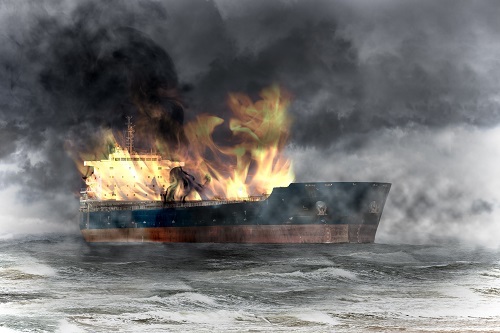Commercial shipping is waking up to the growing threat that drones pose to the safety & security of vessels. Terrorist use of drones deploying explosives is already well documented and the potential for a drone to deliver an explosive charge through the deck of an oil/gas tanker or on a passenger ship with potentially catastrophic results is a stark reality. Vessels in port, at anchor or on coastal transits are potential ‘sitting ducks’ and currently powerless to know if/when they’re going to be attacked, let alone be in a position to defend against the threat.

The ISPS code Part A para 1.3.3 mandates requirements, “preventing the introduction of unauthorised weapons, incendiary devices or explosive to ships” and Ship Security Plans need to address counter measures to protect from such threats. The problem is that, up until now, aerial threats from drones have just not been considered.
The ISPS code requirements for Ship Security Assessments (SSA) & Ship Security Plans (SSP) are specific and comprehensive regarding identification and countermeasures for all risks EXCEPT aerial risks! A ‘straw poll’ of company security officers and ship security officers from within Martek’s existing client base was alarming - most were totally oblivious to the emerging threat of drones nor had they even contemplated this threat in their periodic reviews of the SSA/SSP.
Martek feel this is a topic which merits serious consideration are writing to all maritime non-government organisations, classification societies and flag administrations to raise the issue and get their individual responses on the matter. Martek want to support the industry to ensure the mandatory objectives of ISPS “to detect security threats and take preventive measures against security incidents affecting ships or port facilities used in international trade” are fulfilled in its implementation.
Martek CEO Paul Luen commented, “ISPS needs an urgent update to address the growing threat that drones pose to safety & security of commercial shipping. It’s critical that awareness is urgently raised, and procedures updated to counter the growing threat before it’s too late.”










